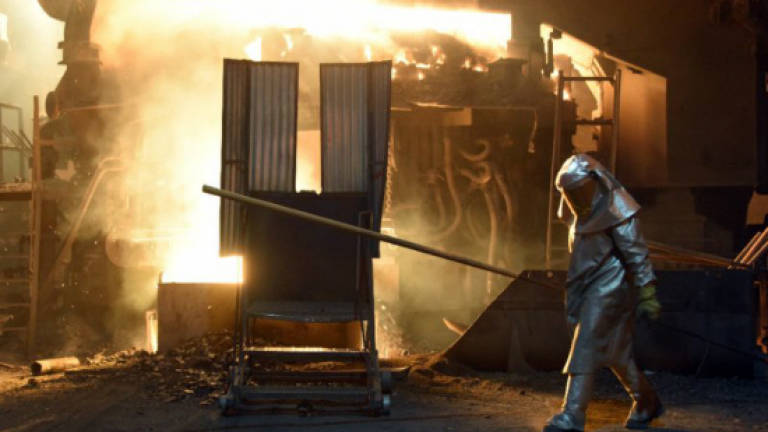In steel country, a thumbs up to Trump's tariffs

PITTSBURGH: US lawmakers, industry leaders and foreign governments have decried President Donald Trump's tariffs on steel and aluminum imports.
But they've met with a far different reaction in Steel City.
Workers and companies in and around Pittsburgh, the industrial engine of western Pennsylvania that used to produce much of the world's steel, are solidly behind the move.
Trump's announcement is not a protectionist measure but a levelling of the playing field for American workers, they argue.
"The announced relief has already sent a positive charge through the industry that the decline in steel and aluminum sectors can be reversed," said United Steelworkers International vice president Tom Conway.
The Pittsburgh-based union, which represents some 850,000 workers in North America, is a powerful voice in an industry that has been crippled for decades by cheap imports and modernizing technology.
Labor representatives of industry titans like US Steel lined up behind Trump in the Oval Office Thursday as he announced the tariffs, which drew immediate condemnation from congressional leaders in his own party as well as trade organizations that expressed concern over how the move would impact other industries, and potentially millions of workers.
For steel, it marked yet another step in what one executive called "an enormous comeback" for the industry.
"The overall effect is positive," Piotr Galitzine, chief executive of TMK-IPSCO, a global leader in producing oil and gas pipes, told AFP in an interview.
'Lose a little, gain a lot'
For Russia-based parent company TMK, the tariffs hit in both directions.
"We stand to lose a little on the import side, but gain a lot more on the domestic side," he said.
TMK-IPSCO operates 10 US facilities with 2,000 US-based employees, and "they're delighted" with the tariffs, Galitzine said.
"It's no secret a lot of blue collar voters voted for Trump on the strength of his promise to bring back jobs" after seeing manufacturing positions exported over the last 40 years, he added.
But the president's move will spark "swift and highly targeted" retaliation from abroad, with countervailing tariffs on US exports, said Christopher Plummer, president of Metal Strategies, a consulting firm that analyzes the industy.
Prices will also rise on some goods that use aluminum, like cars and canned beer. "The question is whether it causes much pain", Plummer said.
The steel industry overall has recovered to a healthy degree from the collapse of oil prices in 2014, Plummer noted.
But Pittsburgh, perfectly positioned near highly prized coal and metal sources and at the confluence of three rivers, has been shifting away from heavy industry for years, Chris Briem, a regional economist at the University of Pittsburgh, told AFP.
And metal works have moved on to more profitable locations and more flexible, economic and mobile technology.
In the 1950s, when Pittsburgh's steel industry was the most competitive and biggest in the world, the region hosted more than 100,000 jobs in iron and steel mills.
That number has shrivelled to just 5,000 today, as dramatic improvements in productivity and shifts in technology have changed the industry forever, he said.
"You're not going to rebuild heavy industry in western Pennsylvania, with the tariffs or without," Briem said.
"There's no steel mill here waiting to restart." — AFP